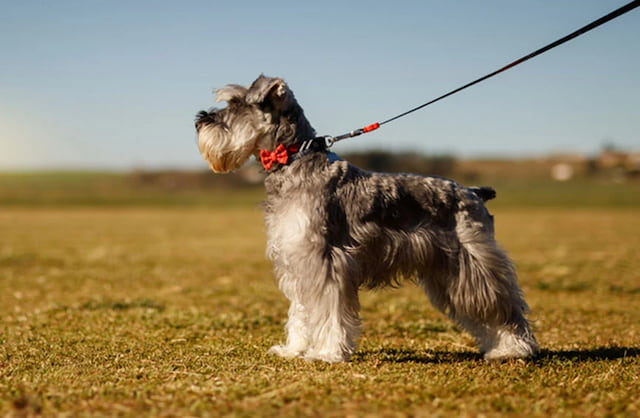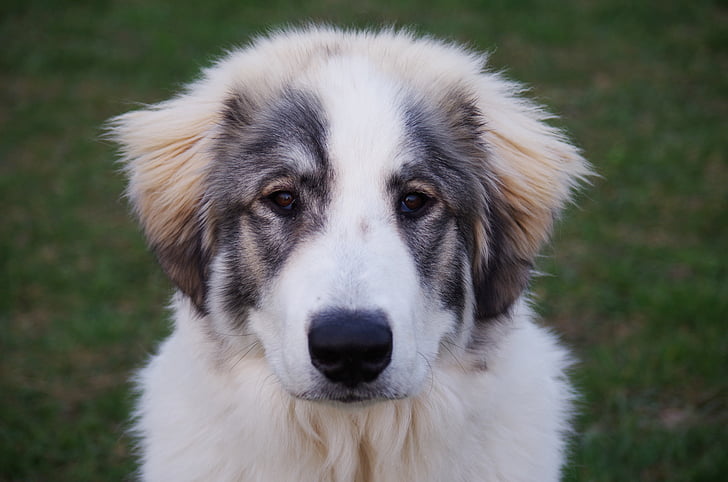
How Long Does A Mini Schnauzer Live? Average Lifespan And Myths
How long does a mini schnauzer live?
12 years is the typical lifespan of a Miniature Schnauzer.
This is comparable to purebred dogs generally because smaller dogs frequently live longer than their larger canine counterparts.
By only breeding from the healthiest parents and giving them good care for their entire life, you can extend the Miniature Schnauzer’s lifespan.
So let’s look at how to accomplish this.
Table of Contents
How Long Does A Mini Schnauzer Live?
The mini schnauzer is a medium dog breed that originated in Germany during the mid-late 19th century. The breed’s lifespan is typically between 7 and 11 years, but they can live longer than these estimates.
The breed is also very affectionate, and they frequently exhibit it. If you’re wondering how long a mini schnauzer will live, read on for some fascinating facts!
The lifespan of a mini schnauzer varies depending on the dog’s health and age. They can live up to 14 years of age if taken care of properly.
They produce fewer allergens because they are hypoallergenic due to their low levels of shedding. Because mini schnauzers are hypoallergenic, you can expect your dog to live longer.
As opposed to most other dogs, miniature Schnauzers are hypoallergenic, which means they have fewer allergens. Dogs’ hair, saliva, and skin contain proteins that can cause allergic reactions.
Mini schnauzers can also develop additional conditions. Some common health issues include progressive retinal atrophy, cushing’s disease, and cataracts.
Pulmonary stenosis and mitral valve disease are two other heart conditions that can affect mini Schnauzers. Like any dog, a healthy diet and regular exercise are essential for good health.

The Longest Living Mini Schnauzer
The oldest Miniature Schnauzer in the world may not be known with certainty.
One Miniature Schnauzer lived to be 18 years old, according to a 2010 study.
Miniature Schnauzers can live to be over 20 years old, though! Consequently, the Miniature Schnauzer can live a very long time!
Read about: How Long Do Standard Poodles Live?
What Does A Miniature Schnauzer Look Like?
The most common variety of Schnauzer is the miniature one. Although these little dogs are typically black, they also come in white and silver-black colors. At the withers, adult dogs can measure up to 30-35 cm, and on a healthy diet, they typically weigh around 8 kilograms.
The miniature Schnauzer can adapt to living in small interiors, which is a big advantage for those who live in apartments. Because they are social, lively, and upbeat, this breed of dog is great for families. But bear in mind that the dog may be stubborn and that this breed requires a lot of playtime and exercise.
What Varieties Of Schnauzers Are There?
The miniature Schnauzer is one of the three types of this dog. The two other two are:
- the giant Schnauzer,
- the standard Schnauzer.
The giant Schnauzer is from 60 to 70 cm tall at withers and might weigh 50 kilograms or more. This breed’s dogs tend to be black in color. They enjoy being active and playing, just like mini Schnauzers. Giant Schnauzers live between 10 and 12 years on average.
The standard Schnauzer reaches from 45 to 50 centimeters at withers and weighs up to 20 kilograms. This breed needs a lot of exercise, just like the giant and miniature Schnauzers.
Your Mini Schnauzer’s Health
For the sake of your pet’s health, it is essential to have your Miniature Schnauzer’s eyes examined. Your miniature schnauzer is prone to eye conditions, including glaucoma, cataracts, and eye ulcers.
Senior dogs are more prone to developing cataracts, which can occur in either or both eyes and lead to partial blindness. A veterinarian removes cataracts.
Any delay could cause the animal to go into shock, so a bloat diagnosis needs to be made right away.
Fortunately, before requiring emergency surgery, the majority of bloat cases can be managed with an antibiotic treatment.
However, if your Miniature Schnauzer develops a bacterial infection, it’s important to get it checked out immediately. Urine with blood in it is urgent.
The best course of action is to take your dog to a veterinary clinic immediately. Pancreatitis, which necessitates hospitalization and intravenous fluids, could be present in your Miniature Schnauzer.
Whether your Miniature Schnauzer has a chronic illness or an acute incident, regular checkups are essential.
It’s important to build trust and a rapport with your veterinarian. Your Miniature Schnauzer will require routine checkups to prevent any problems that may arise in the future. Your veterinarian will likely run DNA and eye exams.
He or she can suggest a routine exam if you are concerned about your Miniature Schnauzer’s health.

Read about: How Long Does A Goldendoodle Live?
Are Mini Schnauzers Likely To Get Sick?
Schnauzer dogs are regarded as a breed with a long lifespan. Mini Schnauzers are typically very healthy dogs who live up to 19 years. The key components of caring for a dog of this type are a healthy diet and physical activity.
Eye conditions are common in small Schnauzers. Typical issues include cataracts and retinal thinning. Rarely do skin problems occur; instead, poor diet or grooming are the usual causes. Kidney stone diseases can affect some mini Schnauzers.
Physical Characteristics Of Mini Schnauzer
A wiry, hard outer coat that is longer around the eyebrows, legs, and muzzle makes up the Miniature Schnauzer dog’s double coat, which is composed of a close undercoat. The abundant facial “furnishings” compliment its keen expression. The Mini Schnauzer has a sturdy build with body proportions that are nearly square. Its strength, speed, and long stride were all developed to help it catch rats.
Personality And Temperament Of Mini Schnauzer
The Miniature Schnauzer is a calm and gentle house dog that enjoys being around interesting activities. It is sociable, playful, spunky, curious, and alert. It is less dominating than other larger Schnauzers and less aggressive toward dogs than many terriers. And even though it usually yields, it can be obstinate or cunning. All Miniatures enjoy the company of kids, though some do have a tendency to bark a lot occasionally.

How To Train A Small Schnauzer?
A group of animals with a high level of intelligence includes the Schnauzer. Miniatures are incredibly well-behaved and eager to play and pick up new skills. A mini Schnauzer should be trained when it is a puppy if you want to succeed. Only 30 minutes per day of training is required for young dogs. However, we advise breaking up this time into several shorter steps with rest periods, such as. for playing. Puppies can learn simple commands like sitting, returning to their spot, lying down, responding to their name, and walking on a leash when they are 8 to 12 weeks old. The best way to praise a good behavior in the dog is by giving him some treats.
Who Is Right For The Mini Schnauzer?
The mini Schnauzer requires a lot of care and activity. Both extremely and moderately active owners should consider this breed. Those who choose to purchase this breed should become interested in animal training. This will enable them to command the pet and teach it a variety of practical commands.
Taking Care Of Your Miniature Schnauzer At Home
Miniature Schnauzer maintenance at home necessitates continuous care. They require complete focus because they are vivacious. They make excellent pets, though.
Initially, try to keep your dog away from new situations or people. You should provide a comfortable bathroom for your Miniature Schnauzer.
Second, make certain your Miniature Schnauzer receives the necessary vaccinations and gets daily exercise. How much exercise your dog needs will depend on its physical condition.
For more information, talk to your veterinarian. A dog park is a good idea if you have a Miniature Schnauzer. Finally, remember to give your Mini Schnauzer three weekly dental cleanings. If your Mini’s coat is dry or matted, brushing is especially important.
The possibility of specific medical issues is something else to consider when taking care of your Mini Schnauzer at home.
It is best to see your veterinarian if you notice persistent diarrhea, vomiting, or weight loss. Some of these illnesses start in childhood and are inherited.
Contact your veterinarian right away if you think your Mini Schnauzer has bladder stones. These little stones frequently roll by themselves.
In this situation, you might want to alter your diet to avoid developing stones in the future.
The health of your dog depends on you checking its coat every day for fleas and ticks.
Using a flea comb, check the coat for any ticks or fleas. Consult your veterinarian for the best course of action if you find any.
It’s crucial to give your pet fresh water in addition to daily inspections. Make sure your puppy has a healthy diet if you want to give him the best possible life.

Increase The Life Expectancy Of Schnauzers
Who doesn’t want to keep their dogs forever and love them? That’s not possible, but we can certainly extend their stay with us.
Schnauzers, like any breed, are more susceptible to some illnesses than others. Here are a few suggestions you can use to take care of the health issues beforehand.
Caring Dental
Unfortunately, Schnauzers are not exempt from the widespread prevalence of dental diseases in dogs, which causes about 80% of them to experience painful dental problems before the age of two. Particularly in their later years, plaque and tar buildup are quite typical.
The bacteria in that tar are deadly because they enter the bloodstream and harm your friend’s heart, liver, and other vital organs. Both the odor and dental problems can be avoided by brushing and cleaning their teeth regularly. To prevent future discomfort for your pet, think about going to the dentist frequently.
Maintaining Healthy Weight
Schnauzers are prone to obesity, which like in humans can lead to a number of deadly illnesses like joint, stomach, heart, back, and so forth. Although these dogs may find it difficult to lose weight, maintaining a healthy weight with a balanced diet and regular exercise can help.
Buying From A Breeder
Make sure you see where the puppy was raised if you intend to purchase it from a breeder. This includes getting to see the parents and the rest of the litter.
This will allow you to look for warning signs and ensure that the breeder is taking good care of the dogs.
Additionally, your breeder ought to be delighted to provide you with the dogs’ medical history. It is ideal for both the parents and the puppies to be in good health and free of hereditary conditions. Vaccinations for them should also be current.
A healthy puppy is a great way to lengthen the life of your Miniature Schnauzer.
Taking Good Care Of Your Pup
Next, watch over and take care of your Miniature Schnauzers on a daily basis to lengthen their lives.
Your dog needs the same things that humans do: a balanced diet, plenty of water, and regular exercise. Additionally, you should maintain your dog’s cleanliness and grooming.
Furthermore, keep in mind that behavioral changes are frequently the first indication of a health condition. You might be able to identify issues early if your dog is acting strangely and you have the opportunity to take them to the vet.
This brings us to our next tip for extending your dog’s life. regular visits to the veterinarian for them. The best way to make sure your dog stays healthy and content is with routine checkups.
You can keep your dog’s vaccinations up to date while you’re there. Likewise, any flea and heartworm prevention they may require.
Last but not least, give your furry friend a lot of love while they’re here!
Proper Canine Diet
The long-term health of your pet is dependent upon his diet. To build his immune system and prevent digestive issues, our furry friend needs organic and high-quality food. He must only consume food designed specifically for dogs, whether you prepare it at home or buy it at the market. Aside from that, be careful not to feed him leftovers or human food.
Maintaining Good Activity Levels
It’s essential for the physical and mental wellbeing of Schnauzers to keep them occupied. Engage them in a variety of games and activities to prevent them from engaging in bad behavior. Depending on your Schnauzer’s age and size, different levels of exercise may be required.
Schnauzers are more susceptible to pancreatitis, diabetes, and obesity. Keeping your pet active can lower the likelihood of him contracting diseases, even though there is no one cause for these excruciating and potentially fatal conditions.

FAQs
How Much Food Should A Small Schnauzer Eat?
It is essential to feed a miniature Schnauzer because it has an immediate impact on its health and appearance. For the diet of these dogs, consistency is crucial. Puppies up to 7 weeks old should consume 5 meals per day. Adult dogs ought to eat twice per day.
What Is The Price Of A Mini Schnauzer?
The starting price for a pedigree registered mini Schnauzer is $500. A pet costs more the more distinguished its pedigree.
How Long Do Mini Schnauzers Grow?
A year is roughly how long the miniature Schnauzer grows. For a year, it is regarded as a puppy. Considering this, it ought to be given balanced meals.
What Do Miniature Schnauzers Die From?
Female miniature schnauzers are more likely to have heart murmurs, dental disease, and obesity. The males breed, however, are more susceptible to diarrhea and claw damage. The most common causes of death were neoplasia (14.7%), collapse (13.3%), mass-associated disorder (10.7%) and brain disorder (10.7%).
How Long Do White Schnauzers Live?
Health. The Miniature Schnauzer, with a lifespan of 12 to 14 years, sometimes suffers from health problems like mycobacterium avium infection, cataract and retinal dysplasia.
Miniature Schnauzer Old Age Problems
Miniature schnauzers are prone to cataracts in addition to other serious eye conditions such as cherry eye, glaucoma, and eye ulcers. Cataracts can be caused by poor nutrition, an infection, diabetes, or an injury, although they are more common in older dogs, according to veterinary professionals.
How Long Do Small Dogs Live For?
Knowing how long you can expect your small dog to live is crucial because properly caring for an animal is a serious responsibility. Usually, small dog breeds live 12 to 14 years, which is the average lifespan.
Lifespans for popular small dog breeds:
- French Bulldog = 10-12 years
- Beagle = 12-15 years
- Miniature Poodle = 14-16 years
- Toy Poodle = 14-16 years
- Yorkshire Terrier = 12-16 years
How Long Do Medium Dogs Live For?
Since properly caring for a pet is a serious responsibility, it is imperative to learn how long you can actually anticipate your medium dog living. The typical life expectancy for medium-sized dog breeds ranges from 10 to 13 years.
Lifespans for popular medium dog breeds:
- Labrador Retriever = 10-12 years
- German Shepherd = 10-13 years
- Golden Retriever = 10-12 years
- Bulldog = 8-10 years
- Standard Poodle = 12-15 years
How Long Do Large Dogs Live For?
Knowing how long you can reasonably expect your large dog to live is important because properly caring for a pet is a big responsibility. The typical life expectancy for large dog breeds is between 9 and 12 years.
Lifespans for popular large dog breeds:
- German Shepherd = 10-13 years
- Rottweiler = 8-11 years
- German Shorthaired Pointer = 12-14 years
- Great Dane = 7-10 years
- Bernese Mountain Dog = 7-10 years
Conclusion
So, how long does a mini schnauzer live? The majority of dog owners used to believe that a dog’s year was equivalent to seven human years. The simple 1 to 7 year equation, however, is incorrect because the most recent research shows that young puppies age much more quickly than young humans do.
Do you want to quickly and easily convert Miniature Schnauzer years to human years?




